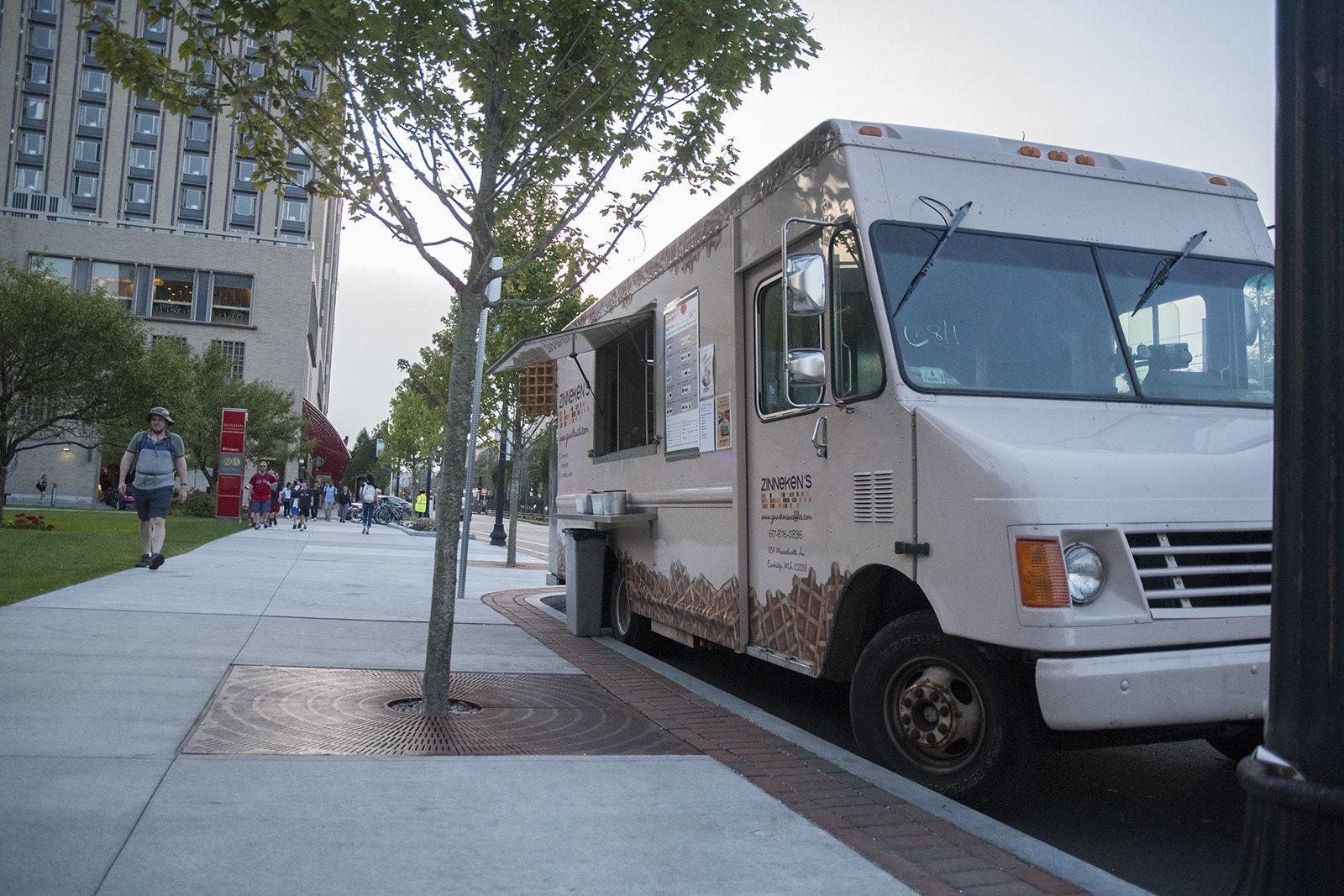Boston’s food truck industry has suffered smaller crowds and decreased revenue since March, despite an uptick in outdoor dining caused by the pandemic.

Even as chain restaurants enter the city’s mobile vendor industry, long-standing local vendors have struggled, said Malachi Hernandez, mobile enterprise manager at the Mayor’s Office of Economic Development.
“The food truck industry community has definitely been hit very, very hard,” Hernandez said. “A lot have either had to temporarily close down or permanently close down unfortunately, and it’s just been very challenging.”
Those closures have been noticeable, said Anh-Phi Tran, managing partner at Zinneken’s, whose Waffle Truck used to park in front of COM.
“We used to see a lot of trucks when we’d go do our shifts but it’s not the case anymore,” Tran said. “It’s a really solitary type of business for now.”
Zinneken’s truck did not attract a high level of popularity while vending at BU in recent months, Tran said.
“I noticed [students] were there, but they were just not in class and not walking around, so not coming to the trucks,” Tran said. “It just doesn’t make any sense to come out there and not make money.”
In addition to significantly decreased demand from customers, the pandemic’s challenges have included higher supply and labor costs, Tran said.
“The minimum wage is going up too, so you’re making less money,” he said. “Everything costs more … at some point it was impossible to find gloves.”
As local restaurants and mobile vendors face these financial obstacles, they’ve been met by COVID-19 relief grants from the Mayor’s Office of Economic Development.
“We’ve been doing our best to support them,” Hernandez said.
Those grants come from a number of operations, including the Reopen Boston Fund, among others, Hernandez said. Those awards and others allow for monetary assistance including up to $3,000 per small business for PPE related material.
“Ever since COVID did hit, we have really tried to dissect what does it mean to really support food trucks during this time,” Hernandez said. “With food trucks particularly, it’s an industry where it really does thrive off of that social interaction, a large presence of people, and that’s kind of difficult to do right now during COVID.”
Although the City has offered financial support for businesses, pandemic-inflicted losses extend beyond operating costs, said Patrick Lynch, CEO of Boston restaurant Bon Me, which also operates food trucks.
Lynch added that the City created new food truck locations in residential areas, but the proximity to neighborhood restaurants makes zoning difficult.
“I’m sure that restaurant owners … when their business is way down, don’t really want a food truck parking outside too,” Lynch said.
Lynch added that he was concerned Chick-fil-A’s expansion into the food truck business — having recently begun vending on Commonwealth Avenue — may not be in line with the industry’s original personality.
“It feels a little bit against the spirit of the food truck program,” Lynch said. “I think it’s more like local businesses that are getting their start or have been around as food trucks for a while and not necessarily like a publicity vehicle for a bigger brand.”
Chick-fil-A’s presence in Boston is relatively new. Former Boston Mayor Thomas Menino denounced the franchise from operating in the city in 2012 due to anit-LGBTQ+ sentiments from the company.
Lynch added that major corporations can afford to operate a truck for increased exposure.
“They can run a truck and lose money to get exposure,” Lynch said, “whereas a local brand needs to make money when they go out there.”
























































































































